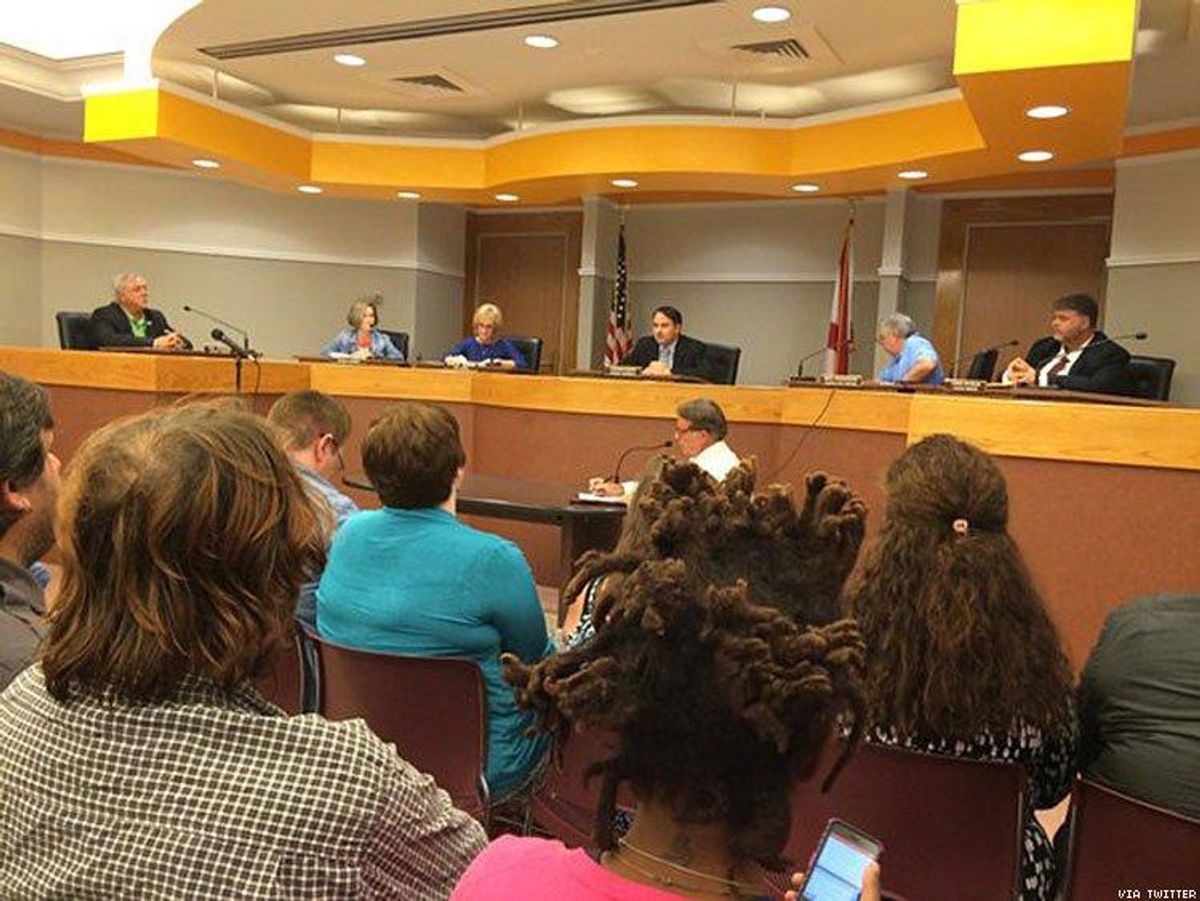On April 26, the City Council of Oxford, Ala., unanimously approved an ordinance that would make it a punishable offense to use a restroom that did not match the gender on one's birth certificate. This ordinance went even further than North Carolina's House Bill 2 in that it called for a fine of $500 or six months in jail for those found in violation. The ordinance came about in response to Target's company policy concerning bathrooms, which states that customers may use the restroom that matches their gender identity.
Although northeast Alabama is very conservative, there is a vibrant and active LGBT population here. Equality Calhoun is a local LGBT organization that was born during Alabama's same-sex marriage debates of 2015. What began as a onetime event to support marriage equality in Calhoun County became a more comprehensive LGBT rights effort. When the Oxford bathroom ordinance was announced, Equality Calhoun had the organizational network in place to act quickly. It may be fair to say that the city council did not anticipate either the negative national coverage or the local response to such a harsh ordinance. Equality Calhoun, in close association with our local PFLAG chapter in Anniston, began to mount a multipronged approach to fighting the ordinance.
Some of our allies worked behind the scenes to make larger organizations aware of the ordinance. We contacted coaches and schools in the Ohio Valley Conference, which is the athletic conference of nearby Jacksonville State University. We reminded them that transgender or gender-nonconforming students, athletes, and staff would be in a potentially unsafe situation regarding public restrooms during events in Oxford. The conference announced May 2 that it would cancel its softball tournament scheduled in Oxford's new $34 million facility because of the new ordinance.
Local resident Sherry Matthews attended an Oxford long-range planning meeting just a few days after the ordinance was passed. Matthews is the president of PFLAG Anniston and the mother of a transgender son. When she heard some members of the council saying they were proud their city stood firm against the foolishness of people "like that" using their bathrooms, she decided to speak. She shared that discrimination was not a laughing matter, especially to the mother of one who was the butt of their jokes. Matthews said you could have heard a pin drop. At the close of the meeting, when the council asked what would make people proud of our city, Matthews said, "Acceptance and equality for all of our residents."
As activists worked on multiple fronts, the Oxford City Council announced an emergency meeting for May 4 to consider repealing the ordinance. Some of our allies worked with a local rape crisis center to write a position outlining the facts of sexual assaults, emphasizing that transgender people are not predators. Both the American Civil Liberties Union and the Southern Poverty Law Center wrote letters urging the council to repeal the ordinance.
On the day of the emergency meeting, local allies along with representatives from state civil rights organizations arrived early to be sure to have access to available seating. The National Center for Transgender Equality sent a representative from Washington, D.C. The city's attorney advised that the ordinance would not stand up to a court challenge. Although two council members maintained their positions that the ordinance was necessary to protect women and children from predators, three of the five council members voted to repeal the ordinance, and it was gone.
The protest that had been scheduled for the following Saturday became a celebration and a rally. Over 100 LGBT people and their allies gathered in an Oxford park to enjoy live music and motivational speakers. Some local transgender people and their family members spoke about how laws such as Oxford's bathroom ordinance affect their ability to safely be outside of their homes. We printed #standwithtrans T-shirts for the event, flew trans flags, and danced in a place that had never seen any kind of a gay rights rally before. Threats of counterprotesters did not materialize.
The author of the bathroom ordinance, City Council president Steven Waits, frequently pointed out that the ordinance would only negatively affect 0.3 percent of the population, as if we can ignore civil rights if the number of people affected is small enough. Through representation at meetings, speaking out on community social media pages, and holding Oxford's first ever LGBT-related rally, the LGBT community of Calhoun County showed our transgender citizens that they do matter, and we showed the community that there is support here, despite being a minority. We have had to patiently point out over and over again that there is no relationship whatsoever between transgender people and pedophilia. We have attempted to educate our region about what transgender means, as it became obvious that many people here had no idea. We reminded our community that LGBT people do live, work, and pay taxes, right here in Oxford, Ala.
Those of us who are involved in gay rights in Alabama can't be sure whether the council members changed their minds because of negative publicity, the threat of big events being canceled, or maybe a true change of heart. We've done our best to educate and to put a face on transgender issues. The council is planning to reintroduce the ordinance in some form, but we're told there will be no mention of gender in the new bill. It will be designed to target actual predators and increase the penalties for those committing crimes in public restrooms. As long as the issue is not tied to a person's gender, the LGBT community will have no problem with the proposed new ordinance. As difficult as the past weeks have been, our community has forged new connections and emerged stronger than ever. We know we will face continued struggles in this part of the country, but we've shown that we won't remain silent when our rights are ignored.
JANIS U. BUNTEN is an organizer for Equality Calhoun, an LGBT rights organization in Alabama.














































































